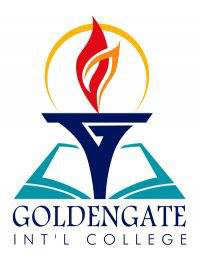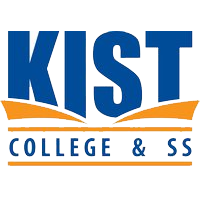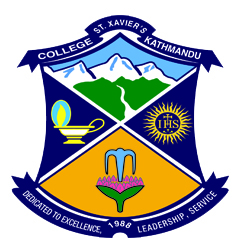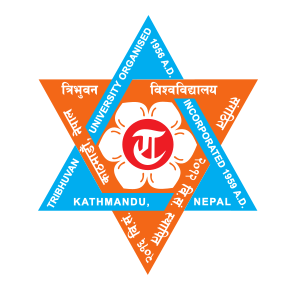Overview
The Central Department of Geology (CDG), located in Kirtipur, Kathmandu, is renowned for its exceptional contribution to the field of geoscience. With a single building housing 23 spacious and well-equipped rooms, CDG provides a conducive learning environment for its students. The department prides itself on nurturing sound geoscientists and consistently achieving outstanding academic results.
At CDG, students are exposed to an international standard academic syllabus, ensuring they receive a comprehensive education in geology. The courses offered are designed to enhance their employment prospects by equipping them with both theoretical knowledge and practical skills. The department goes beyond traditional classroom and laboratory teaching, emphasizing extensive fieldwork techniques. This practical approach prepares students to excel in various real-world applications, such as tunnel construction, road development, bridge engineering, and dam projects.
A Legacy of Excellence: Tracing the History of CDG
The roots of CDG can be traced back to 1968 when the Department of Geology was established in Tri-Chandra College under Tribhuvan University. Initially, the department offered B.Sc. in Geology, and later, in 1976, it introduced the M.Sc. program. It wasn't until 1986 that the Central Department of Geology was established at the Kirtipur Central Campus, becoming the focal point for geology education and research.
Throughout its existence, CDG has produced approximately 500 students, with 486 of them graduating between 1989 and 2011. However, the number of enrolled students has experienced fluctuations during this period. Notably, around 40 percent of CDG graduates have found employment within the Department of Mines and Geology, while the remainder has pursued diverse career paths in various field areas.
Beyond Academics: Sports and Extracurricular Activities at CDG
CDG recognizes the importance of a well-rounded education and actively promotes sports and extracurricular activities among its students. The department collaborates with various entities to organize sporting events and tournaments. One such event is held during the second week of Mangsir (according to the Nepalese calendar) to commemorate the CDG Anniversary. This tournament sees participation from current and former students, faculty members, and staff, fostering a sense of camaraderie and promoting a healthy competitive spirit.
Additionally, CDG takes part in the Interfaculty Sport Tournament, an annual event organized by the TU Student Union. This tournament serves as an avenue for students to engage in extracurricular activities and interact with peers from different faculties.
Welcoming and Celebrating Success: Welcome and Farewell Programs
To foster a sense of community and facilitate interaction among students, faculty, and staff, CDG organizes Welcome and Farewell programs. These events extend a warm welcome to incoming students and bid farewell to those graduating. Jointly organized by CDG and the NGSS (Name of Organization), these programs provide opportunities for sharing experiences and building connections within the CDG community.
Academic Resources and Facilities:
The Central Department of Geology (CDG) understands the importance of providing comprehensive academic resources and state-of-the-art facilities to its students. Here are some of the notable resources and laboratories available at CDG:
1. CDG Library: A Wealth of Knowledge
Established in 2006, the CDG Library (Plate 3) is a treasure trove of geological literature. It boasts an extensive collection of journals, bulletins, technical reports, dissertations, textbooks, and reference books. Equipped with computers, printers, and internet facilities, students can utilize the library for research and study purposes.
2. TU Central Library: A Vast Repository of Knowledge
The Central Library of Tribhuvan University, the largest library in Nepal, offers an invaluable resource for geology students. It houses a vast collection of books and periodicals across various disciplines. Geology students can benefit from dedicated sections within the library that focus on geology-related books and journals.
3. Petrographic Laboratory: Analyzing Rocks and Minerals
CDG's petrographic laboratory (Plates 2 and 3) is well-equipped with cutting-edge facilities for rock analysis. From rock cutting and slicing to thin slicing and mineral identification, the laboratory utilizes high-power polarizing microscopes and stereoscopes. It enables detailed petrography analysis of aggregates, sediments, and alkali-silica reactivity in various rock samples.
4. XRD Laboratory: Unveiling Mineral Composition
The XRD laboratory (Plate 4) at CDG features a computer-controlled Bruker's D8 advance diffractometer with Diffrac plus software. This advanced equipment allows for the identification and determination of the relative proportion of economic and deleterious minerals. The analysis of clay minerals has broad applications in hydrocarbon exploration, engineering, environmental management, earthquake hazard assessment, agriculture, land use planning, and environmental interpretation.
5. Engineering Geological Laboratory: Testing Soil and Rock
The Engineering Geological Laboratory (Plate 5) at CDG is equipped with various testing machines and tools for soil and rock analysis. These include triaxial machines, direct shear test machines, consolidation testing machines, Casagrande's tools, ovens, sievers, and more. The laboratory is continually upgraded with additional machines, such as sieve shakers and uniaxial compression machines, to enhance testing capabilities. It offers a wide range of tests, including water content determination, grain size analysis, consolidation tests, and unconfined compression tests.
6. Geophysical Laboratory: Exploring Subsurface Dynamics
CDG's geophysical laboratory features essential equipment such as Ground Penetrating Radar (GPR), Terrameter, and seismic refraction survey instruments. These tools aid in studying the subsurface characteristics and dynamics, providing valuable insights for geological research and exploration.
7. Laboratory of Ore Microscopy: Examining Mineral Specimens
The laboratory of ore microscopy at CDG houses an impressive collection of specimens, including ores, ore minerals, and ore microscopes. This resource allows students to delve into the microscopic world of minerals and gain practical experience in identifying and analyzing mineral samples.
8. Computer Room for GIS: Harnessing Geospatial Technology
Equipped with multiple computers, a digitizer, a plotter, and various software such as Ilwis, Autocad, Corel draw, Arc View, Arc GIS, and Dipts, the Computer Room (Plate 6) at CDG serves as a hub for geospatial analysis and Geographic Information Systems (GIS). Students can utilize these tools to analyze and visualize geological data, facilitating research and mapping exercises.
9. Museum and Specimens: Exploring Geological Wonders
The CDG museum (Plate 7) houses an extensive collection of specimens, including ore minerals, rock-forming minerals, sedimentary rocks, metamorphic rocks, igneous rocks, and fossils of animals and plants from Nepal and beyond. This collection serves as a valuable resource for research, study, and appreciation of geological diversity.
At CDG, students have access to cutting-edge laboratories, libraries, and specialized resources that empower them to delve deeper into the fascinating world of geology. These facilities play a crucial role in enhancing their learning experience and nurturing their practical skills in the field of geoscience.
Fees and Scholarship Opportunities:
Understanding the financial aspect of education, CDG offers transparent fee structures to its students. The fees are categorized under various heads, including Entrance Examination, Entrance, Tuition, ID card, Laboratory, Library, Campus Development, Official Deposit, Examination, Dissertation, Students' Union, Students' Welfare, Principal Office, Nepal Geological Students' Society, and Miscellaneous. Detailed information regarding the fee structure can be obtained by successful candidates at the time of admission.
Tuition Fee Exemption
CDG recognizes the importance of encouraging and supporting exceptional academic performance. As a result, it provides tuition fee exemption to twenty percent of the total students admitted to the department. The selection criteria for the exemption are determined by CDG, giving deserving students the opportunity to pursue their education without the burden of tuition fees.
Scholarship Opportunities
In addition to the tuition fee exemption, Tribhuvan University offers partial scholarships to both male and female students who excel in their first-year examinations. This scholarship program aims to recognize and reward academic achievement, providing financial assistance to deserving students and encouraging them to continue their academic journey.
CDG values affordability and recognizes outstanding academic performance through its tuition fee exemption and scholarship opportunities. These initiatives aim to make quality education accessible to students from diverse backgrounds and promote excellence in geoscience studies.
Admission Guidelines at CDG:
The Central Department of Geology (CDG) follows specific guidelines for the admission process to ensure the selection of qualified candidates who meet the eligibility criteria. Here are the key aspects of the admission guidelines at CDG:
Eligibility for Admission:
To be eligible for admission to the M.Sc. course in Geology or Engineering Geology at CDG, candidates must have successfully completed the B.Sc. course in Geology from Tribhuvan University or any other equivalent universities or institutions. Additionally, candidates should have completed the prescribed geological field training at the B.Sc. level.
Admission Criteria:
The admission process at CDG involves an entrance examination, followed by a merit-based selection. Candidates are required to appear for a two-hour entrance examination conducted by CDG. It is important to note that candidates who do not appear for the entrance examination or fail to achieve the minimum qualifying score will not be considered for admission.
A merit list of qualified applicants is then prepared based on the following criteria:
- Percentage of marks obtained in the B.Sc. examination (weighted 20%)
- Marks obtained in the Entrance Examination (weighted 80%)
The combined scores from these criteria determine the ranking of applicants in the merit list.
Admission Capacity and Merit List:
The final admission of students is based strictly on the merit list and the available enrollment capacity of CDG. The merit list serves as the primary basis for selection, ensuring that deserving candidates secure a place in the program.
For M.Sc. Geology, CDG offers a total of 50 quotas for admission. In the case of M.Sc. in Engineering Geology, there are 24 quotas available at CDG, with an additional option for students to join Tri-Chandra Campus based on the merit list. Tri-Chandra Campus also offers 24 quotas for this program.
CDG's admission guidelines prioritize a fair and transparent selection process, focusing on academic performance and the potential of candidates in the field of geology.
Programs Offered at CDG:
The Central Department of Geology (CDG) at Tribhuvan University offers a range of programs that cater to the academic and research aspirations of students in the field of geology. With a focus on excellence and comprehensive learning, CDG provides the following programs:
-
PhD in Geology: CDG offers a prestigious PhD program in Geology, providing an advanced platform for scholars to conduct in-depth research and contribute to the field's knowledge base. This program is designed for aspiring researchers and academicians who seek to make significant contributions to geology through rigorous study and dissertation work.
-
MSc Geology: The MSc program in Geology at CDG is a flagship offering, providing a comprehensive understanding of geological concepts, theories, and practical applications. With 50 available seats, this program accommodates a significant number of students, allowing them to delve into various sub-disciplines of geology and develop expertise in their areas of interest.
-
MSc Engineering Geology: CDG also offers a specialized MSc program in Engineering Geology, catering to students interested in the application of geology to engineering and infrastructure projects. With 24 available seats, this program equips students with the necessary knowledge and skills to analyze geological factors related to construction, geotechnical engineering, and environmental management.
CDG's programs combine theoretical knowledge, practical training, and research opportunities, ensuring that students receive a well-rounded education in geology. By offering both MSc and PhD programs, CDG provides a pathway for students to pursue advanced studies, contribute to research advancements, and shape the future of geology as a discipline.
Contact Central Department of Geology's administrative office for detailed information on the course, admissions, location, fees, scholarships, facilities, counseling, or eligibility.
















